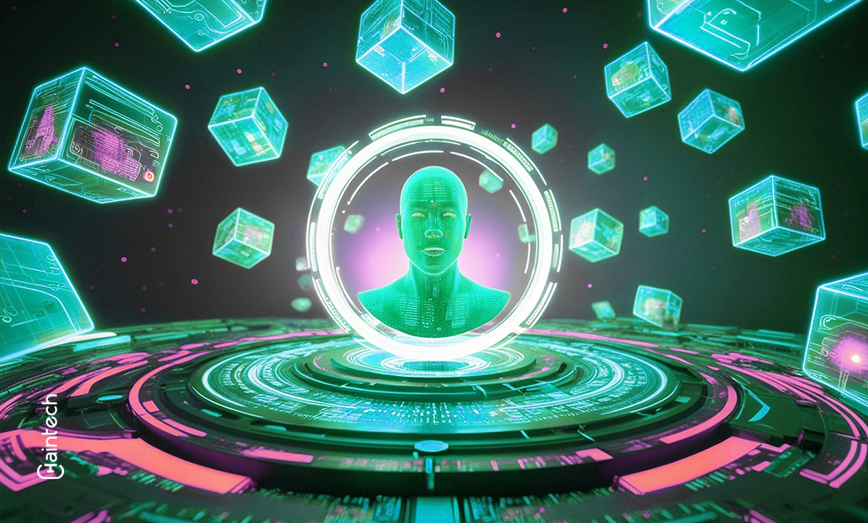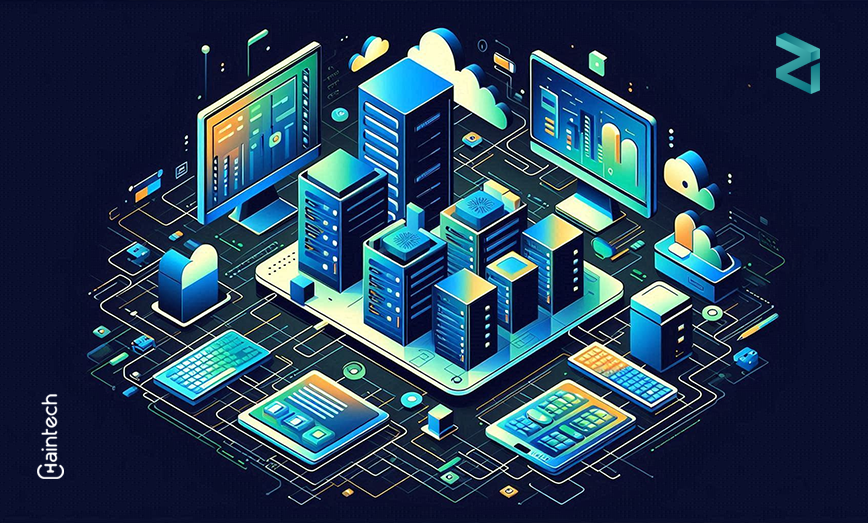Digital Identity and Blockchain: A Revolutionary Approach

Let’s discuss the topic of the day: digital identity verification.
If one is to reflect upon his/her everyday life, then it is part of the normal routine. Be it logging in to applications or confirming a transaction, there is always some form of verification taking place online using one’s identity in some form or other on the web. As with everything else, this method, too, has its fair share of disadvantages. It can be frustratingly slow and not very secure, and on top of it all, it lets you have very limited autonomy over your internet records.
One survey indicates that a good proportion of the population has reservations regarding the security of their data. Another cause for concern is the potential for cyber attacks. Cyber thieves break in, impersonate their victims, and do all sorts of damage! This is exactly what fuels the need for a solution like blockchain technology.
This is where the benefits of using blockchain technology apply to the process of digital identification verification. It provides a more secure, faster, and convenient way of authenticating users’ identities.
What is in store for us with the reason for blockchain-based digital identity verification?
Identity verification using blockchain technology is a newer concept for people because, traditionally, it’s done through a single hub and process owned by someone. In terms of blockchain, swathes of these blockchains are decentralized worldwide.
This is how it goes:
- They have been broken down into fragments and are secured through encryption.
- These pieces are stored across many computers (called nodes).
- If someone wants to identify you, they simply go to the catalog with your surname and other necessary details within the network or ecosystem.
This approach makes the task overly complex even for advanced cybercriminals, eliminating the possibility of accessing or manipulating the target data. And you are not as helpless as before; your data belongs to you.
Why traditional identity verification needs help
Right now, traditional systems rely on centralized databases. Think of them like filing cabinets. If someone breaks into one, they can access everything inside. This is what happens in data breaches.
Other problems include:
- Slow processes: Verifying documents can take days or even weeks.
- High Costs: Business expenditures on legacy systems are scaling.
- Data Sovereignty: You do not have much control regarding the usage of your data.
Given the numerous risks, it is evident that we need a better alternative.
How blockchain guarantees privacy when identifying users’ digital identities
One of the most important considerations when establishing a digital identity is privacy. In some cases, doing only one task, like confirming one’s age, requires a person to provide their full name and date of birth as well.
Things are changing because of blockchain, with the use of zero-knowledge proof through cryptographic techniques. This allows people to prove an assertion without having to divulge additional details, such as the case of being asked to prove one’s age; only the age is provided without going into further details.
With the help of blockchain, you stay in charge. You choose who has access to your information and for how long. Blockchain also prevents third parties from abusing the information. Privacy and security are the best attributes, making it suitable for the healthcare or banking industries.
Industries set to make the most of blockchain-enhanced identity verification process
Several sectors have already started utilizing blockchain for identity verification, and it’s beneficial in:
- Banking: Improving efficiency in the KYC processes and cutting costs.
- Travel: Faster border checks with verifiable digital passports.
- E-commerce: Secure transactions without sharing sensitive details.
- Healthcare: Safe access to patient records.
- Education: verified certificates and degrees.
These fields are just the tip of the iceberg. As the blockchain expands, we can expect to see even more industries embrace this safe and effective system.
The trust never-ending: Bolstering the digitized future with blockchain
Trust is of utmost importance in the modern cyber world. It is why people are reluctant to give their information and use any services. Here, blockchain comes and offers a path forward through trust built on clear-sight security. Each transaction is logged into the database, cryptographically sealed with encryption, and confirmed by billions of devices, making it virtually impossible to fake or change any.
They also trust businesses. Companies are assured that they are interacting with confirmed users and that their sensitive data is safe. Not only does blockchain achieve a greater scale of securely establishing a user‘s identity, but it has further elevated how users’ trust is made in the digital space.
A comparison of traditional assessment method with blockchain system
| Feature | Traditional Identity Verification | Blockchain-Based Identity Verification |
| Data Storage | Centralized databases | Decentralized, distributed across nodes |
| Security | Vulnerable to breaches and hacks | Highly secure with encryption and immutability |
| Control Over Data | Limited control for users | Full user control (self-sovereign identity) |
| Verification Speed | Slow, manual processes | Instant, automated verification |
| Cost Efficiency | High costs due to intermediaries | Reduced costs by eliminating middlemen |
This table highlights the stark differences between traditional and blockchain-based identity systems.
In what ways can blockchain fix these issues?
Many people’s understanding of blockchain includes cryptocurrencies only. Instead, it is a robust, concise paradigm capable of revolutionizing identity verification. These are possible characteristics:
- Data Autonomy: There is no centralized point where all the data resides. Client information is available on multiple servers, making it impossible for breachers to exploit one server.
- Irrevocable: No individual can delete, retract, or alter any resources uploaded on the blockchain.
- Self-Determination: You have absolute control of your information by deciding which person to share it with and the duration of such access permissibility.
- Speed: Blockchain verifies your identity almost instantly.
Real benefits of blockchain in identity verification
Let’s break down the key benefits.
- Better Security: Hackers can’t easily access or change your data.
- More Privacy: Share only the information you want.
- Global Access: Blockchain works anywhere in the world.
- Lower Costs: Businesses save money by skipping middlemen.
- Faster Approvals: Verifications happen in seconds, not days.
A look at real-world examples
Self-sovereign identity doesn’t only need to be envisaged with the help of technology. It exists.
- Finance: A unique chain KYC enables banks to know their customers faster and safer.
- Healthcare: Patients authorize doctors to get their medical history securely.
- Government: Some countries are testing blockchain IDs for better transparency.
- Education: Universities issue diplomas on the blockchain to prevent fake degrees.
These examples show how blockchain makes identity verification more efficient and reliable.
Did you know?
Blockchain technology can enable “zero-knowledge proofs,” allowing you to verify your identity without sharing sensitive details like your name or address.
Challenges to consider
Blockchain isn’t perfect yet. Here are a few challenges:
- Technical Issues: Setting up blockchain systems can be complex.
- Regulations: Governments need to create clear rules for using blockchain.
- Awareness: Most people do not know the basics behind blockchain technology.
Despite these challenges, research suggests the technology is worth the effort. Its benefits far outweigh its limitations.
Why this matters for the future
With blockchain technology’s integration, identity verification’s future seems promising. Let’s see what the future has in store for us:
- Seamless Global Systems: You’ll be able to use your digital ID anywhere.
- More Control: People will take back ownership of their data.
- Interconnected Solutions: Different systems will work together better.
Not just companies but also governments and individual citizens stand to benefit immensely.
Did you know?
Over half of global data breaches involve identity theft; a problem blockchain can significantly reduce by decentralizing and encrypting identity data.
A safer way forward
People have gotten used to the concept of digital identity verification, and, in fact, it has become part of daily life in society. The trouble is that the current systems leave much to be desired. That is where the advantages of blockchain lie—the provision of an ingenious system that is better and more efficient.
Digital Identity offers protection, enhances efficiency, and places power in your hands. We should not only speak of the technologies but seek to offer confidence in the digital sphere.
Are you excited to find out how blockchain can help to enhance the identification process and methods?
The first question that would have come into your mind after hearing about it is how it works.
FAQs
1. What is meant by using blockchain technology to verify one’s identity?
It’s basically a way of establishing identity with the help of control provided by blockchain; hence, it’s much safer than traditional means.
2. What is meant by verifying data with the help of the blockchain?
What is done when a transaction is recorded within the blockchain is that your information is encrypted and also dispersed across a number of networks in order to render it virtually fraud-proof.
3. Can blockchain replace traditional identity systems?
Yes, it has the potential, but as mentioned above, it will be a matter of time and mass-scale acceptance before the technology is able to deliver on its promise.
4. Where can one find the above methods of identification being used?
Some of the sectors are finance, medical care, technology, government institutions, and educational systems.
5. What are identities of a private or sovereign nature?
Let us make it clear that these are not private keys; rather, they facilitate controlling and accessing their data without the need for third parties.









